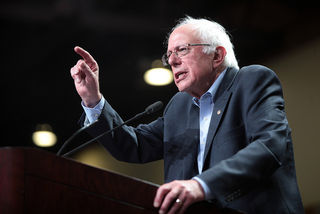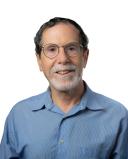Politics
Breaking the S Barrier in New Hampshire
Did the Great Recession break the taboo on the word socialism?
Posted February 9, 2016

For those of us who remember the sight of Democratic politicians scrambling to avoid being tagged with the word 'liberal' as recently as eight years ago, it’s hard to get a handle on the fact that a U.S. senator who openly calls himself a socialist has just won the New Hampshire primary. Has the political world really turned on its head in such a short time? What’s made it ok to use the S word?
The fact that Bernie Sanders’ message has resonated so well with a resurgent liberal or left wing of Democratic party voters is almost certainly not attributable to his use of the phrase “democratic socialist.” Still, his success in spite of sticking with that term calls out for an explanation. And at a basic level, the explanation is quite simple: the Obama administration's disappointingly centrist reaction to the 2008 financial crisis, coupled with the stagnation of incomes for the majority of working Americans for well over a decade, has made the establishment or mainstream of the party, which Bill Clinton and his Democratic Leadership Council ushered in during the 1980s, as unacceptable to many as the labels liberal or even socialist were a decade ago. By adopting Wall Street-friendly responses to the crisis as money from the top tenth of a percent continued to flow to establishment Democrats, Barack Obama himself became for many a part of the old guard. Given her close association with both Clinton and Obama and her ceaseless efforts to make herself attractive to the political center after reaping criticism for her health care reform role early in her husband’s first term, Hillary Clinton became a quintessential mainstream or establishment figure. In comparison to such a status quo figure, even a socialist looks better to angry Democrats.
Is Sanders a socialist? Certainly not in the sense of traditional definitions of the term, in which government or collective ownership of a substantial share of a society’s resources and means of production have always featured. His own explanation of the term “democratic socialist” makes him more of a New Deal democrat or at most European social democrat than a socialist.
One might, however, try on a broader notion of socialism as the idea that individuals and the society of which they are a part are bound up in a web of mutual responsibility. To be a socialist in that sense would be to reject the opposing assertion that (as put by Margaret Thatcher) “There is no such thing as society: there are individual men and women, and there are families.” It would be to affirm that people are joined by an implicit social contract, agreeing to obey a certain set of rules and norms for the sake of shared well-being. And that the people so joined can use government as a tool to help them achieve ends (like safe streets and highways, clean water and breathable air) that necessarily elude them when working only as individuals.
Is America ready to elect a socialist? Perhaps not yet. Although the large majority of the U.S. electorate seem to share a deep frustration with “politics as usual,” their predilections cover the bewilderingly wide spectrum ranging from government-and immigrant-hating tea party-ers and fans of Ted Cruz and Ben Carson on the right to fans of Sanders and Elizabeth Warren on the left. Our medium-to long-run demographics are clearly moving towards a different America in which politicians appealing only to white Christian voters and defending policies that further undermine the economic security of the large majority will be consigned to history … as the 2012 re-election of Obama, despite all of his baggage, already made clear. As that future America emerges, borrowing from the European playbook including its experiments with social democracy might eventually find a place in our political discourse. But whether someone daringly holding up that S word can do well beyond New Hampshire in 2016, and whether a continuing strong performance by Sanders would lead to a cliff-hanger three party race, is hard for even an experienced political tea leaf reader, much less this behavioral economist, to predict.
* * * *
Post-script: Bernie Sanders and the author share an obscure biographical fact. In 1963, a young Bernie Sanders spent some months living and working on a kibbutz (communal village) called Sha’ar Ha’amakim, while this author lived and worked on a kibbutz at a similar age in the early 1970s. On Bernie’s kibbutz stint, see http://www.haaretz.com/israel-news/.premium-1.701513


